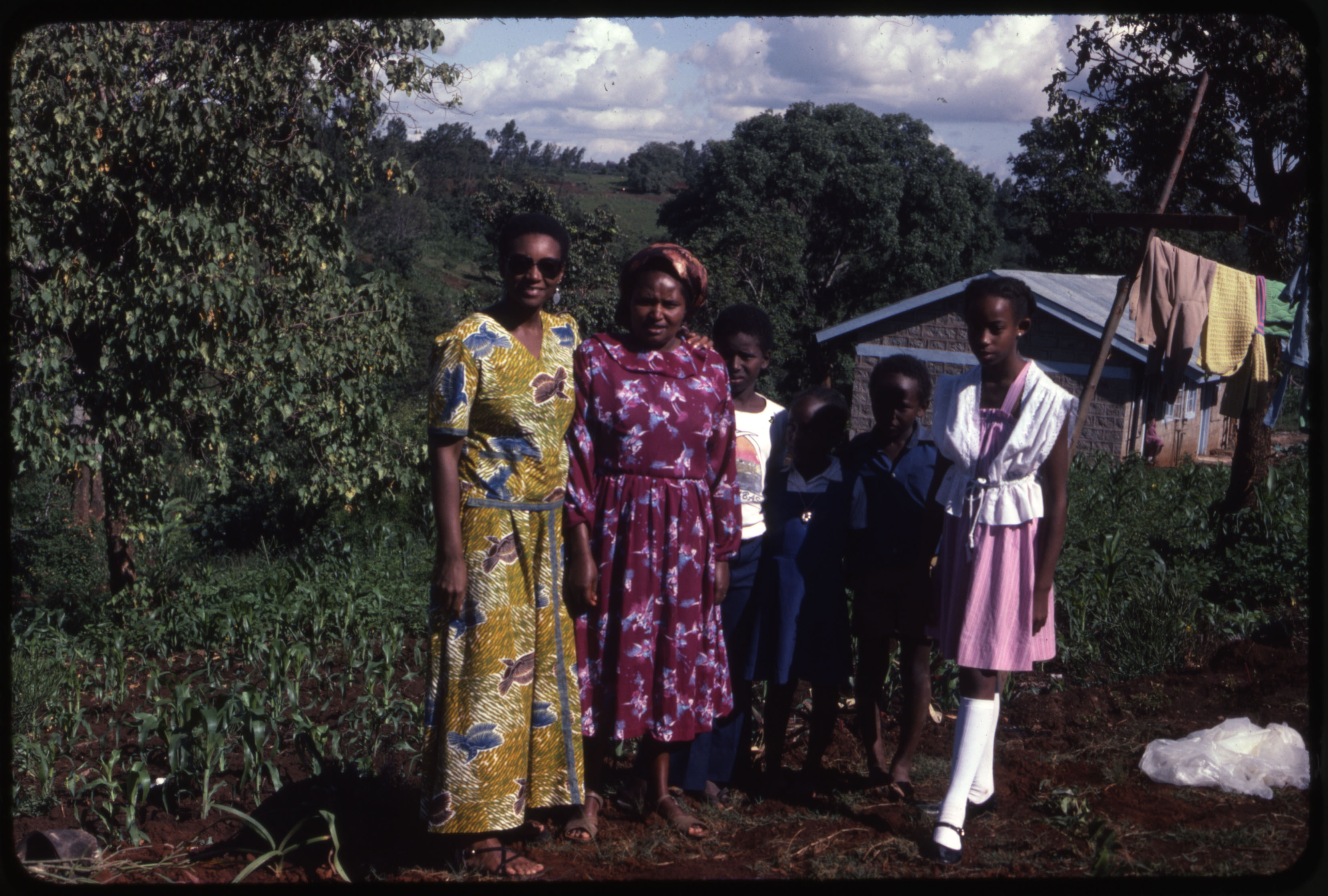Background on Carolyn Martin Shaw

Carolyn Martin Shaw, on left, with family in Kenya, ca.1972
Carolyn Martin Shaw, born Carolyn Martin in a tenement in Norfolk, Virginia in 1944, spent most of her childhood growing up in an all-black lower-middle-class community, Crestwood in Chesapeake, VA. As a child, her mother was a huge influence, instilling in her a sense of hard work and service to others that would stick with her for the rest of her life. Shaw stood out academically in high school – even acting as a substitute teacher while she was still a student! – leading to her geometry teacher guiding her towards attending Michigan State University. She began as a math major, until a first year class on physical anthropology captured her interest due to the grandness and magnitude of the field. She graduated with a BS with honors in 1966. Eventually, Shaw narrowed her interest to a focus on East Africa, due to feeling a sense of familiarity between early 1970s Kenya and her segregated Virginia hometown. While completing fieldwork in Kenya for her dissertation, her experience living with a family where the women did not behave as they were "supposed" to was a turning point for Shaw, leading her to study women and gender relations for the rest of her academic career.
As a graduate student enrolled at Michigan State University, Shaw finished her dissertation, "Kinship Morality in the Interaction Pattern of Some Kikuyu Families," as an Acting Assistant Professor at the University of California, Santa Cruz. In 1975, after three years of working at UCSC and the birth of her daughter, she received her PhD from MSU. Shaw never left UCSC, retiring in 2010. She served many roles, including Professor in the Anthropology Department, the Department Chair from 1993-1996, and as the Provost of Kresge College from 1991-1996.
While at UCSC, Shaw was extremely active in the campus community and was constantly working to improve the UCSC experience for faculty and students alike through community-building challenges. She served on several administrative committees, such as the Committee on Privilege and Tenure and the Committee of Planning and Budget, and played a vital role in the revitalizing of the colleges at UCSC. While serving in the Academic Senate, Shaw worked to help gain faculty recognition of non-faculty staff, to reduce the University's use of police force during student demonstrations, and to develop comprehensive sexual harassment policies. Throughout her entire career she worked to foster a supportive campus environment for students of color at the majority white UCSC.
Shaw received a number of awards for her teaching, her service, and for her research. Included in that list are a Fulbright Fellowship to the University of Zimbabwe in 1983-1984, a Danforth Award for Excellence in Undergraduate Teaching in 1977, and a McHenry Award for Service to the Academic Senate at UCSC in 2004.

